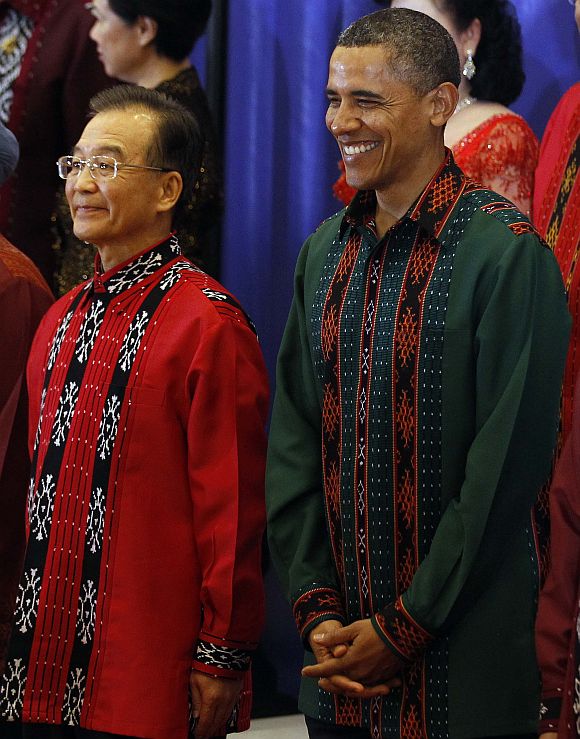Cloth - Textiles & Art
Bali has basically 3 indigenous textiles:
Endek, Gringsing and Tenun Ikat
That being said most of the swaths of cloth and fancy printed apparel on sale on Bali are really Batik and native to Java, not Bali. FYI, the intricate designs on Batik cloth are made by applying wax to the fabric prior to dying each time another color is added (but that's another story...). |
|
Bali's Tenun Endek
|
Inasmuch as endek is really only popular with the Balinese it is not
mass produced - so it is quite safe to say that any endek you
purchase will have been hand made. It is a laborious affair. The horizontal
threads are laid out and pre dyed with a desired pattern in a tie dye type of
operation (the fabric may be dyed several times with different colors). Once
dyed the threads are dried then woven into the vertical threads on the loom. These
vertical threads are only one color - usually black. It is not until the
weaving is complete that one knows for sure the quality and clarity of the
designer's work. This is just a rough idea how the process works, it's actually
much more complicated than this with several people (men included) to make just
one bolt of cloth. The finished bolt is about 20 feet long by 3.5 feet wide. It
takes about 10 days just to weave one bolt of cloth - so think of the value!
 |
| Sacred Gringsing clothes |
Now, if you think endek is tricky try it with both the vertical and
horizontal threads at the same time. Imagine a weaver must come up with a
design then "tye dye" both the horizontal and vertical threads
separately up to 2-3 times depending on the number of colors used. Even the
slightest miscalculation when dying the yarn or a mistake by the weaver and
months of work are lost. This is basically how gringsing is produced in
the Balinese Village of Tenganan - one of two or three places in the entire
world capable of producing this extraordinary textile.
 |
|
Heads of states wearing traditional shirts made of tenun
ikat
|
The third cloth, tenun ikat is also popular on Bali. Like endek the
horizontal threads are dyed and woven into a solid vertical thread on the loom.
The difference is that the patterns are solid colored blocks or simple crossing
patterns. This cloth is also mostly produced by hand and is very popular in
fashionable circles for clothing, home furnishings and accessories.
0 Response to "Indigenous Textiles of Bali"
Post a Comment